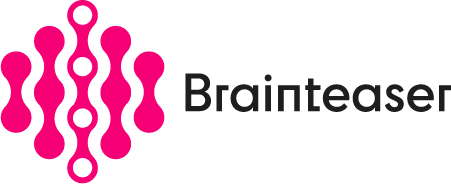By: Sergio González Martínez, Universidad Politécnica de Madrid
With the support of: Natalia Allegretti, Global Health Connector – The Global Health Connector
The BRAINTEASER project is at the forefront of healthcare advancements, utilising Artificial Intelligence (AI) models to analyse diverse data sources, including clinical data, patient questionnaires, activity data, and air quality measurements. By harnessing AI-driven insights, BRAINTEASER aims to uncover new methods for managing the chronic diseases Amyotrophic Lateral Sclerosis (ALS) and Multiple Sclerosis (MS). These cutting-edge technologies are being tested in a multi-centre observational pilot study to enhance personalised care and improve health outcomes.
The BRAINTEASER AI models are integrated into two main components:
- The Patient App: This mobile application collects essential data for AI model creation and training. Patients fill out questionnaires and report symptoms, receiving personalised insights and health recommendations based on data analysis.
- The Clinical Dashboard: Designed for healthcare professionals, this portal provides AI-generated insights for tracking patients, monitoring disease progression, predicting health outcomes, and tailoring treatment plans. It offers a comprehensive view of each patient’s health, minimising the effort required from professionals.
BRAINTEASER’s AI models produce various outputs. Critical insights are exclusively available to healthcare professionals via the Clinical Dashboard, ensuring sensitive information is managed by experts. Meanwhile, patients can access data impacting their care through the Patient App, empowering them to manage their health.
The Patient App includes several interventions to enhance patient outcomes and promote personalised care and empowerment:
- Symptom Modification: Patients report symptoms dynamically adjusted based on previous data and clinical insights from the Clinical Dashboard.
- Reminders: Regular reminders improve adherence to data collection, ensuring continuous health monitoring.
- Activation of Exercises and Educational Content: Tailored exercises and educational materials are activated or deactivated based on the patient’s health status and disease progression, including guidance on exercises, daily recommendations, and disease management strategies. Sensitive content activation requires clinical supervision.
- Future Developments: Future updates may include environmental quality recommendations and specific activity recommendations for MS patients based on their status and activity level.
The Clinical Dashboard offers advanced AI insights and capabilities for healthcare professionals:
- Model results visualisation: Professionals can assess AI model outcomes across multiple variables using graphical representations. Key variables include mortality, percutaneous endoscopic gastrostomy, and non-invasive mechanical ventilation for Amyotrophic Lateral Sclerosis (ALS), as well as the Expanded Disability Status Scale (EDSS) for MS severity, where scores above 3 indicate significant disability.
- Patient stratification and predictions: The dashboard includes information on categorising patients into different groups and making predictions about changes in specific elements of the ALS Functional Rating Scale (ALSFRS) for patients with ALS.
- Intervention Modification: Clinicians can adjust interventions based on patient preferences, health status, and disease progression, ensuring personalised care.
To date, the BRAINTEASER project has enrolled over 250 patients, with plans to include a total of 300 by the end of the study. Each centre has approximately three clinicians actively using the tools.
Patients were surveyed during the initial months of using the tool, with a follow-up survey planned at the study’s conclusion to compare results. While definitive outcomes are pending, general feedback has been positive. The initial evaluation used the System Usability Scale (SUS) questionnaire, which will be used again in the final evaluation for direct comparison. Preliminary results show the Patient App scoring above 6 out of 10 on the SUS scale, indicating satisfactory usability.
Clinicians will receive an evaluation, but the system has already undergone enhancements based on their positive feedback, showcasing its effectiveness and continuous improvement.
—————————————————————————————————-
Join our Community of Practice: A collaborative space for MS and ALS patients, caregivers, and clinicians to share expert-supervised knowledge and AI advancements for managing these conditions.




